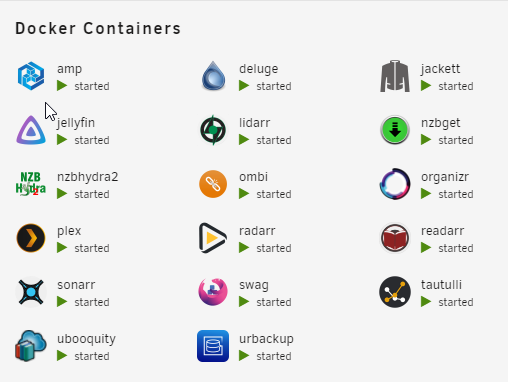

you need some Linux-specific functionality like backing up directories with symbolic links). In general, for most home and small business users, I would suggest that your default posture be toward SMB, using NFS when you have identified a specific need for it (i.e. If you have a mixed-OS network, SMB works very well and you should likely just stick with SMB.
#Unraid setup guide windows
Windows): NFS requires some simple additional setup on Windows devices (even that's not as big of a deal as it used to be), but most devices offer support for SMB right out of the box.
#Unraid setup guide how to
Additionally, in a future post, I will show you how to not only minimize the "NFS stale file handle" problem through good client mount configuration, but also how to allow your clients to fix the problem on their own automatically so this will be less of an issue. Don't let this scare you off from NFS, it's still reliable and, the majority of the time, the only time I have a problem with NFS on unRAID is when I have rebooted my unRAID server. NFS "stale file handles" anyone? Obviously this is a gross oversimplification since many large enterprises use NFS just fine. If you want to argue semantics, maybe it's more appropriate to say that NFS is much more "finicky" than SMB.

As you deal with larger files and get more into sequential IO performance territory, though, the advantage between NFS and SMB blurs.

Maybe you're already using a network share, so when should you choose NFS over SMB? Here are the reasons to consider NFS over SMB/CIFS/"Windows Shares": It's a protocol that allows you to export files across a network so that additional devices can access them. So what are NFS shares and why should you use them? Why Should I Use NFS Shares? When Should I Use NFS Shares?įirst of all NFS shares are a protocol for network file sharing, in fact that's what "NFS" stands for, "network file system". The answer is that, yes there is, they're called "NFS shares". If you are, then you probably also wonder if there's a "Linux network share". Many of you are already familiar with SMB shares (more colloquially known as "Windows network shares" and, among Linux users, as "CIFS shares"). Includes more advanced configuration on how to deploy an unRAID NFS server behind a firewall with static ports.

A brief guide on when and how to set up an NFS server on unRAID.


 0 kommentar(er)
0 kommentar(er)
